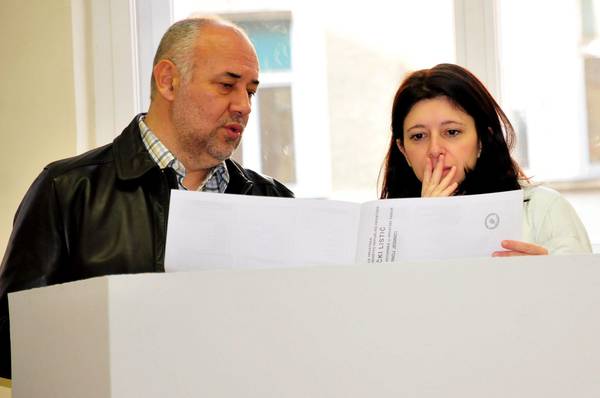Elections in Croatia, right-wing opposition ahead
But first results highlight risk ungovernability
10 November, 13:57by Franko Dota
(ANSA) - ZAGREB - Vote counting after Sunday's election in Croatia shows the right-wing opposition ahead of the Social Democrats in government. However, the gap appears so far insufficient to form a one-party cabinet with days, perhaps weeks, of uncertainty looming ahead. Based on 40% of the votes counted, the center-right of Tomislav Karamarko is leading with 60 MPs out of a total of 151 making up the Parliament in Zagreb.
The center-left of outgoing premier, Zoran Milanovic, has 54 lawmakers. Both are still hoping to form the future government that will rely on the backing of a third party, Most (the bridge), a centrist movement formed a few months ago by influential members of local communities demanding reforms in all sectors, in particular the economy. The Bridge has become the third main party in the country with 19 lawmakers. Turnout was good - 60.06% out of the 3.8 million who have a right to vote cast their ballots. The picture emerging so far shows the Social Democrats are head-to-head with the Croatian Democratic Union (HDZ) or a marginal victory for the latter, a disappointing result which is well below expectations: just a few months ago all polls showed the center-right was leading with some 10 percentage points ahead of the center-left. When in 2012 Karamarko took the party's reins, HDZ had emerged from a devastating electoral loss and a series of corruption scandals for which ex-premier Ivo Sanader is still on trial. The new leader succeeded in cleaning up the image of HDZ, moving it more towards right-wing positions and continuing to hail the nationalist values of the independence war of the 1990s. Until the government's economic results were negative, this strategy appeared to work. But when, over the last six to seven months, macroeconomic data started to show signs of recovery, Premier Milanovic threw himself into an aggressive and populistic campaign which today has materialized in a substantial tie which nobody had predicted after six long and difficult years of recession. For the center-left, the result is well below what they achieved four years ago when they had 80 MPs in Parliament.
And following behind the two main contenders, the third political force surprisingly emerged. It was hastily created six months ago by mayors, intellectuals and little-known personalities, without a clear political program. Members have refused to respond to questions on ethical or ideological values or to say if the party is close to the right or left. The Most party (bridge) has garnered 19 MPs, who will be crucial for the future majority. Last Friday, however, its leader Boz Petrov signed a formal statement in which he vowed not to forge a coalition with either of the two main parties. A period of political uncertainty and instability is thus looming ahead for the search of a majority able to govern the country.














